Acne vulgaris impacts 50 million people in the U.S., costing over $3 billion annually1. As a teen, I understand the frustration of dealing with acne. Thankfully, effective first-line treatments can help you fight pimples and boost confidence.
For mild acne, dermatologists recommend topical retinoids, benzoyl peroxide, and combined topical antibiotics1. These treatments unclog pores, reduce inflammation, and kill acne-causing bacteria. Prescription acne medications may take 4-8 weeks to show results, so be patient2.
Oral antibiotics like doxycycline and minocycline work better for moderate to severe acne1. Young women with stubborn acne may benefit from hormonal therapies. Four FDA-approved combined oral contraceptives blend progestin and estrogen for acne therapy2.
Isotretinoin is a powerful option for severe nodular acne that persists1. Be aware of potential side effects like inflammatory bowel disease and depression. Your dermatologist will monitor your health during isotretinoin treatment1.
Check back often for reviews on beauty supplies. We cover acrylic nails, nail polish remover, hair products, and skincare essentials. Find info on vegan and cruelty-free makeup, anti-aging creams, and more.
Key Takeaways
- Topical retinoids, benzoyl peroxide, and combination topical therapies are first-line treatments for mild acne.
- Oral antibiotics like doxycycline and minocycline are effective for moderate to severe acne.
- Hormonal therapies, such as combined oral contraceptives, can help manage acne in adolescent females.
- Isotretinoin is a powerful option for severe nodular acne but requires close monitoring due to potential side effects.
- Patience is key when starting acne treatments, as results may take several weeks to appear.
Understanding Acne Vulgaris in Adolescents
Acne is a tough skin issue for many teens. It can cause both physical and emotional stress. Let’s look at how common acne is and why it happens.
Prevalence and Impact of Acne in Adolescents
Acne affects up to 85 percent of U.S. teens3. It can leave scars in 20 percent of severe cases3. Acne often leads to depression, anxiety, and poor self-image3.
As someone with acne, I know how it hurts self-esteem. It’s crucial to find good pimple treatment for teenagers. This can help reduce both physical and mental effects.
Pathogenesis of Acne Vulgaris
Knowing what causes acne helps create better adolescent skincare plans. Acne develops due to several key factors:
- Increased sebum production
- Abnormal keratinization of hair follicles
- Proliferation of Cutibacterium acnes bacteria
- Inflammation and immune response
These factors work together to form acne. They create comedones, papules, pustules, and sometimes nodules and cysts. Targeting these causes helps dermatologists create effective treatment plans.
“Acne is complex and needs a multi-pronged approach. Understanding its causes helps us create personalized strategies for clearer, healthier teen skin.”
Next, we’ll explore treatments for mild, moderate, and severe acne. This will help teens manage their skin and boost confidence. Remember, you’re not alone in this journey.
Visit us for top beauty supply reviews. We cover skincare, makeup, hair care, and more. Find the best products for your needs and budget.
Topical Treatments for Mild Acne
Topical treatments are an effective starting point for mild acne. These products are applied directly to the skin. They can reduce breakouts and improve skin appearance.
Common topical treatments include benzoyl peroxide, topical retinoids, and combination therapies. Each targets acne in different ways.
Benzoyl Peroxide
Benzoyl peroxide kills acne-causing bacteria and reduces inflammation. It’s available over-the-counter in strengths from 2.5% to 10%.
A study compared different concentrations of benzoyl peroxide. It found varying effects on inflammatory acne vulgaris4.
Another study evaluated topical isotretinoin 0.05% and benzoyl peroxide gel 5%. These were compared to a placebo, revealing differences in effectiveness4.
Topical Retinoids
Topical retinoids, like adapalene and tretinoin, come from vitamin A. They unclog pores and promote cell turnover.
A study compared tazarotene 0.1% gel and adapalene 0.1% gel. Both were effective for facial acne vulgaris4.
A meta-analysis showed adapalene 0.1% gel was similar to tretinoin 0.025% gel. Both were effective for acne vulgaris4. Topical retinoids have shown 40-60% efficacy in treating acne lesions5.
Combination Topical Therapies
Combining topical treatments often yields better results than single products. Common combinations include benzoyl peroxide with antibiotics or retinoids.
A study compared clindamycin phosphate/benzoyl peroxide gel to clindamycin gel alone. Another study evaluated clindamycin phosphate/tretinoin gel versus clindamycin lotion4.
Research also analyzed benzoyl peroxide and tretinoin together. A multicenter study looked at adapalene and clindamycin combined4. Both showed promising results for acne treatment.
| Topical Treatment | Mechanism of Action | Efficacy |
|---|---|---|
| Benzoyl Peroxide | Kills acne-causing bacteria and reduces inflammation | Varies based on concentration (2.5% to 10%) |
| Topical Retinoids (Adapalene, Tretinoin) | Unclogs pores and promotes cell turnover | 40-60% efficacy in treating acne lesions |
| Combination Therapies (Benzoyl Peroxide + Antibiotic or Retinoid) | Targets multiple acne-causing factors | Potentially better results than single product use |
Azelaic acid can manage dyspigmentation from inflammatory acne. Consider skin type, acne severity, and potential side effects when choosing treatments.
With the right combination and consistent use, most mild acne cases can be managed effectively.
Check back often for the best reviews on beauty supplies, including the best acrylic nails, best nail polish remover, best hair color kit, best hair growth serum, best skincare routine, best moisturizer for dry skin, best vegan beauty products, best cruelty-free makeup, best anti-aging cream, best foundation for oily skin, best makeup brushes, and the best beauty blender.
Oral Antibiotics for Moderate to Severe Acne
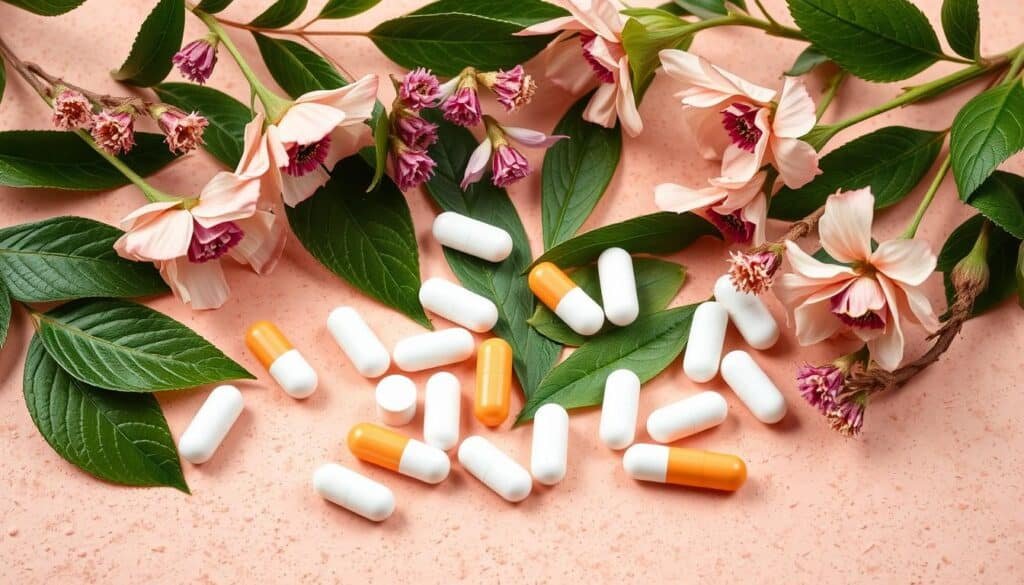
Oral antibiotics have been crucial in treating moderate to severe acne for over 50 years3. Moderate acne shows several papules, pustules, and nodules. Severe acne has numerous papules, pustules, and many nodules6.
These treatments can prevent long-term scarring, which affects up to 20% of severe acne cases3. Oral antibiotics offer relief when topical treatments aren’t enough for more severe cases.
Tetracyclines: Doxycycline and Minocycline
Tetracyclines like doxycycline and minocycline are the most common oral antibiotics for acne37. Doxycycline, FDA-approved since 1967, builds up in sebaceous glands where acne-causing bacteria thrive3. It comes in hyclate and monohydrate forms, differing in water solubility3.
Doxycycline has fewer side effects than tetracycline3. Minocycline also improves acne lesions significantly, even in topical foam form for patients as young as nine7.
Tetracyclines work by fighting bacteria and reducing inflammation3. Their dual action makes them effective in treating acne.
Macrolides: Erythromycin and Azithromycin
Macrolides like erythromycin and azithromycin can treat acne when tetracyclines don’t work. However, erythromycin and clindamycin are rarely used due to bacterial resistance3. Doctors should prescribe macrolides carefully and for short periods.
Avoiding Antibiotic Monotherapy and Resistance
Guidelines advise against using oral antibiotics alone for acne. Combining them with topical retinoids and/or benzoyl peroxide is recommended7. Topical retinoids should be used first and continued to prevent various acne lesions7.
Low-dose doxycycline or using topical benzoyl peroxide can help prevent antibiotic-resistant bacteria7. The CDC promotes antibiotic stewardship to keep these medications effective long-term3.
Check back often for the best reviews on beauty supplies, including the best acrylic nails, best nail polish remover, best hair color kit, best hair growth serum, best skincare routine, best moisturizer for dry skin, best vegan beauty products, best cruelty-free makeup, best anti-aging cream, best foundation for oily skin, best makeup brushes, and the best beauty blender.
Hormonal Therapies for Acne in Adolescent Females
Hormonal therapies offer hope for teen girls battling stubborn acne. These treatments target hormonal imbalances that often cause acne in young women8. By addressing the root cause, these therapies can lead to clearer skin and boost self-esteem.
Spironolactone
Spironolactone, an anti-androgenic medication, shows promise in treating women’s acne. It’s effective for many, with 2/3 of women experiencing significant improvement9. Studies reveal it can reduce acne by 50% to 100% when taken alone.
Results from spironolactone can be seen within weeks. Breakouts and oiliness decrease, making it a fast-acting treatment option9. Taking it at the same time daily yields the best outcomes.
Combined Oral Contraceptives
“The pill” effectively treats various types of acne. This includes blackheads, whiteheads, pimples, and even nodules and cysts9. Many studies show significant results in treating acne with oral contraceptives.
These contraceptives play a key role in acne management. They offer a practical solution for many women struggling with persistent acne8.
When considering hormonal therapies, it’s crucial to weigh potential risks. For healthy women, serious side effects can be carefully managed9. However, some may experience mild side effects.
Possible side effects include blood clots and high blood pressure with the pill. Spironolactone may cause irregular periods, breast tenderness, and cramping9. Doctors consider these factors when prescribing acne treatments.
I’ve seen a significant improvement in my acne since starting spironolactone. It’s been a game-changer for my confidence and overall skin health.
If you’re a teen girl struggling with acne, talk to your dermatologist. They can help you find the right treatment plan. Clear, healthy skin is possible with the right approach.
Check back often for reviews on beauty supplies. We cover acrylic nails, nail polish removers, hair color kits, and more. Find the best products for your skincare and makeup needs.
Isotretinoin for Severe Nodular Acne
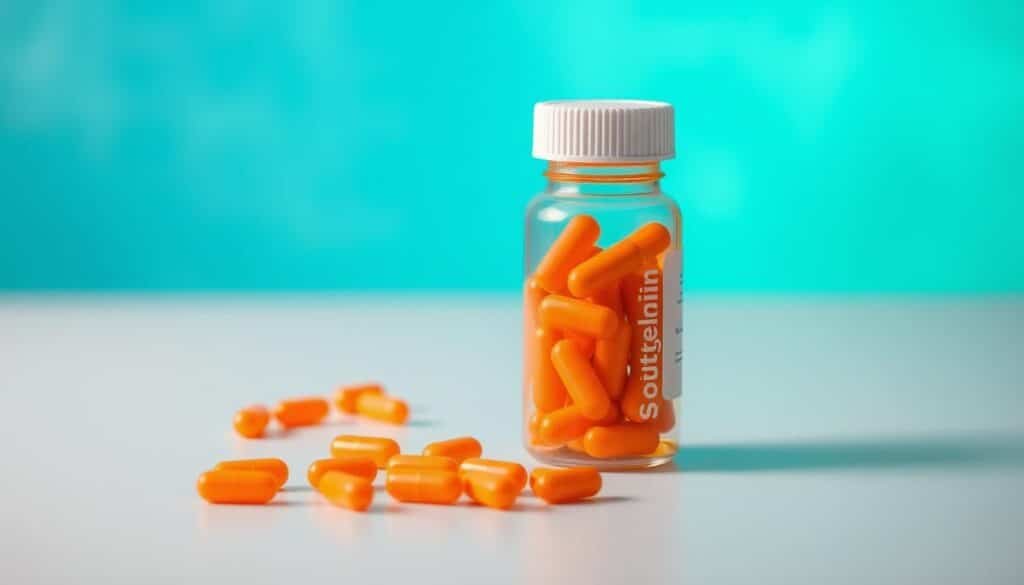
Isotretinoin is a powerful solution for teens with severe nodular acne. It tackles the main causes of acne, reducing oil and inflammation. This oral medication leads to clearer skin for those who’ve tried other treatments without success10.
Research shows isotretinoin greatly improves severe recalcitrant nodular acne. It’s a valuable option for those dealing with this stubborn condition11.
Indications and Efficacy
Isotretinoin treats severe nodular acne and moderate acne resistant to other therapies. It’s also used for acne causing scars or distress.
A 1994 study by Strauss JS et al. proved isotretinoin’s effectiveness for acne10. Low doses work well and have fewer side effects.
Adverse Effects and Monitoring
Isotretinoin is generally safe but can cause hypervitaminosis A symptoms. These side effects usually stop when treatment ends.
Doctors monitor patients for inflammatory bowel disease and depression. It’s crucial to know about isotretinoin’s potential birth defects, as Stern RS noted in 198910.
iPLEDGE Risk Management System
The iPLEDGE system ensures safe isotretinoin use. It prevents pregnant women from taking the drug and helps avoid pregnancy during treatment11.
Patients need two negative pregnancy tests before starting isotretinoin. They also need monthly tests during treatment. Women must confirm using two birth control methods monthly11.
Patients must use two approved birth control forms for a month before, during, and after treatment11.
Isotretinoin is a game-changer for those with severe nodular acne. It has given me the clear skin I never thought I could have. While the iPLEDGE program can be strict, it’s worth it for the amazing results.
Isotretinoin offers hope to those struggling with severe nodular acne. It’s a powerful treatment that can lead to clear, healthy skin.
By following iPLEDGE guidelines and watching for side effects, patients can safely use this effective medication.
Check back often for the best reviews on beauty supplies, including the best acrylic nails, best nail polish remover, best hair color kit, best hair growth serum, best skincare routine, best moisturizer for dry skin, best vegan beauty products, best cruelty-free makeup, best anti-aging cream, best foundation for oily skin, best makeup brushes, and the best beauty blender.
Lifestyle Modifications and Complementary Therapies
New research suggests certain foods may affect acne. A high glycemic index diet and skim milk might worsen breakouts. One study found that a low-glycaemic-load diet could reduce skin lesions.
A review of 35 studies revealed promising results for some natural remedies. Tea tree oil decreased acne severity and lesion count. Pollen bee venom also showed potential in reducing skin lesions12.
The study also looked at other treatments like antioxidants and fish oil. However, there wasn’t enough evidence to recommend these for acne management. More research is needed to confirm their effectiveness12.
Many alternative treatments were included in the review. These ranged from herbal medicine to acupuncture and cupping therapy. While some showed promise, the studies had limitations12.
I’ve found that making small lifestyle changes, like eating a low-glycemic diet and using tea tree oil, has helped improve my acne. It’s worth exploring these options alongside traditional treatments.
Always talk to your dermatologist before trying new acne treatments. Some therapies might not mix well with your current medications. They could also cause unwanted side effects12.
Visit us for top beauty supply reviews. We cover acrylic nails, nail polish removers, and hair color kits. You’ll also find info on hair growth serums, skincare routines, and moisturizers.
Conclusion
The best acne treatment for teens varies based on severity. Mild acne often responds to topical benzoyl peroxide or retinoids. Moderate to severe cases may need oral antibiotics like doxycycline and minocycline.
Combining topical antibiotics with benzoyl peroxide helps prevent bacterial resistance1. Using different drug mechanisms typically leads to successful outcomes13. For teen girls, hormonal therapies can be effective in managing acne.
Severe nodular acne may require oral isotretinoin1. Low doses reduce side effects. Girls must receive contraception counseling and join the iPLEDGE program before starting treatment113.
Diet changes aren’t primary treatments, but some foods may worsen acne. High glycemic index foods and skim milk can aggravate symptoms1. Healthcare providers use guidelines to create personalized treatment plans.
Acne usually improves 4 to 6 weeks after starting therapy13. Visit us for top beauty supply reviews. We cover anti-aging creams, moisturizers, vegan products, and hair growth serums.
Find the best acrylic nails, skincare routines, makeup brushes, and foundations for oily skin. We also review hair color kits, beauty blenders, cruelty-free makeup, and nail polish removers.
FAQ
What is the first-line treatment for mild acne in adolescents?
How can moderate to severe acne be treated in adolescents?
Are hormonal therapies effective for treating acne in adolescent females?
What is the recommended treatment for severe nodular acne in adolescents?
Can dietary changes help in managing acne in adolescents?
Source Links
- Acne Vulgaris: Treatment Guidelines from the AAD – https://www.aafp.org/pubs/afp/issues/2017/0601/p740.html
- Acne – Diagnosis and treatment – https://www.mayoclinic.org/diseases-conditions/acne/diagnosis-treatment/drc-20368048
- Oral Antibiotic Treatment Options for Acne Vulgaris – https://www.ncbi.nlm.nih.gov/pmc/articles/PMC7577330/
- Management of acne – https://www.ncbi.nlm.nih.gov/pmc/articles/PMC3080563/
- Acne Vulgaris Guidelines: Guidelines Summary – https://emedicine.medscape.com/article/1069804-guidelines
- Diagnosis and Treatment of Acne – https://www.aafp.org/pubs/afp/issues/2004/0501/p2123.html
- Medical Care, Surgical Care, Consultations – https://emedicine.medscape.com/article/1069804-treatment
- Hormonal treatment of acne vulgaris: an update – https://www.ncbi.nlm.nih.gov/pmc/articles/PMC5015761/
- Stubborn acne? Hormonal therapy may help – https://www.aad.org/public/diseases/acne/derm-treat/hormonal-therapy
- The use of isotretinoin in acne – https://www.ncbi.nlm.nih.gov/pmc/articles/PMC2835909/
- Isotretinoin: MedlinePlus Drug Information – https://medlineplus.gov/druginfo/meds/a681043.html
- Complementary therapies for acne vulgaris – https://www.ncbi.nlm.nih.gov/pmc/articles/PMC4486007/
- Acne Pharmacotherapy: A Review – https://www.uspharmacist.com/article/acne-pharmacotherapy-a-review

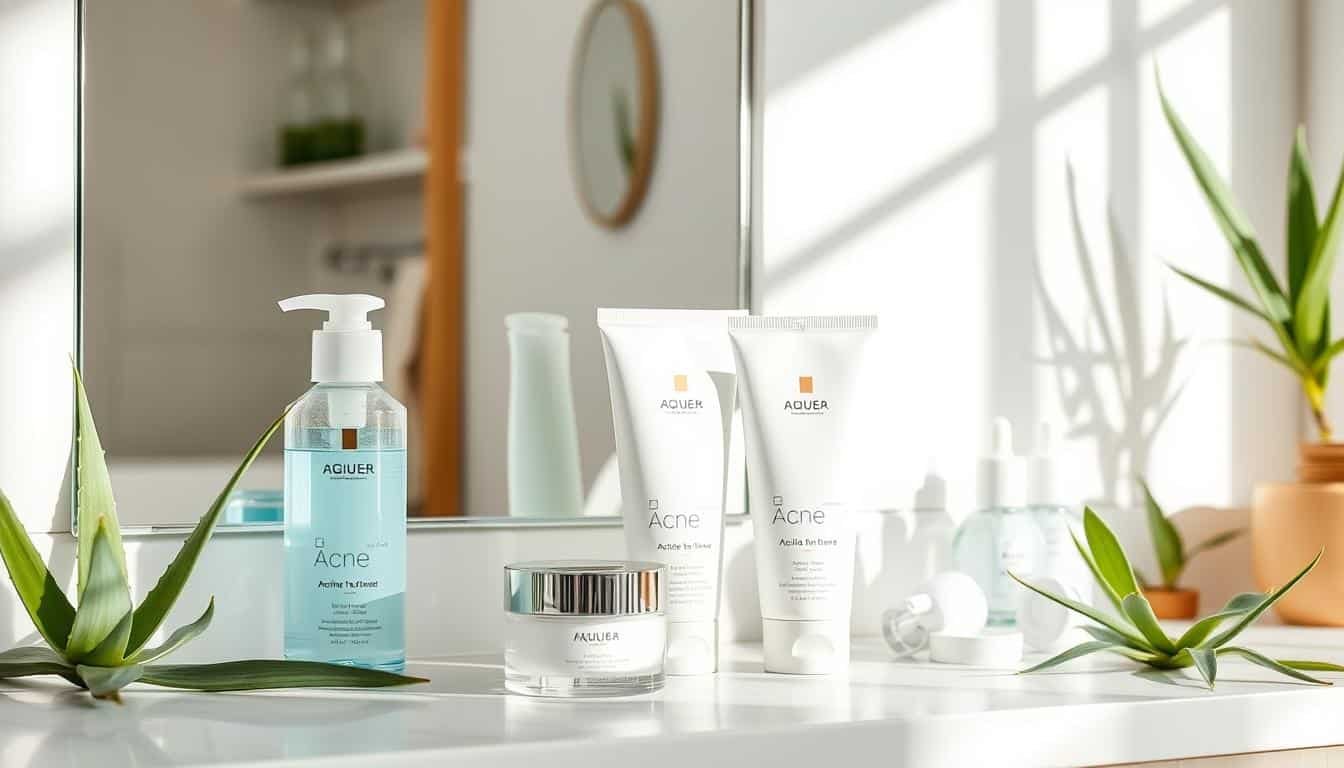

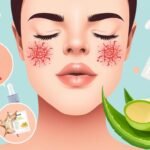
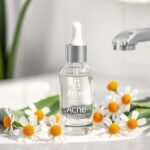
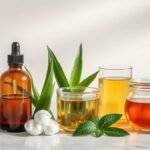
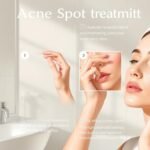
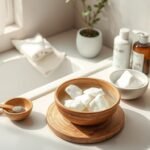
Anyone else think its odd that were treating teen acne like a scary disease, instead of a normal part of growing up?
Anyone else think that changing diet could have a bigger impact on acne than these first-line treatments? Just food for thought.
What if puberty acne is not a disease but an evolutionary advantage? Maybe were just pathologizing a natural process? Food for thought.
Why not explore natural remedies more? Treating acne with drugs at such a young age seems a bit extreme, no?
Isnt acne just a puberty rite of passage? Maybe were over-medicating our kids instead of letting nature run its course?
Does anyone else think its weird were pumping kids full of meds before even trying natural acne treatments? Just a thought.
Im just saying, is it fair to medicate teenagers for acne? Isnt it just a natural part of growing up? 🤔 #teenlife #acnetreatment